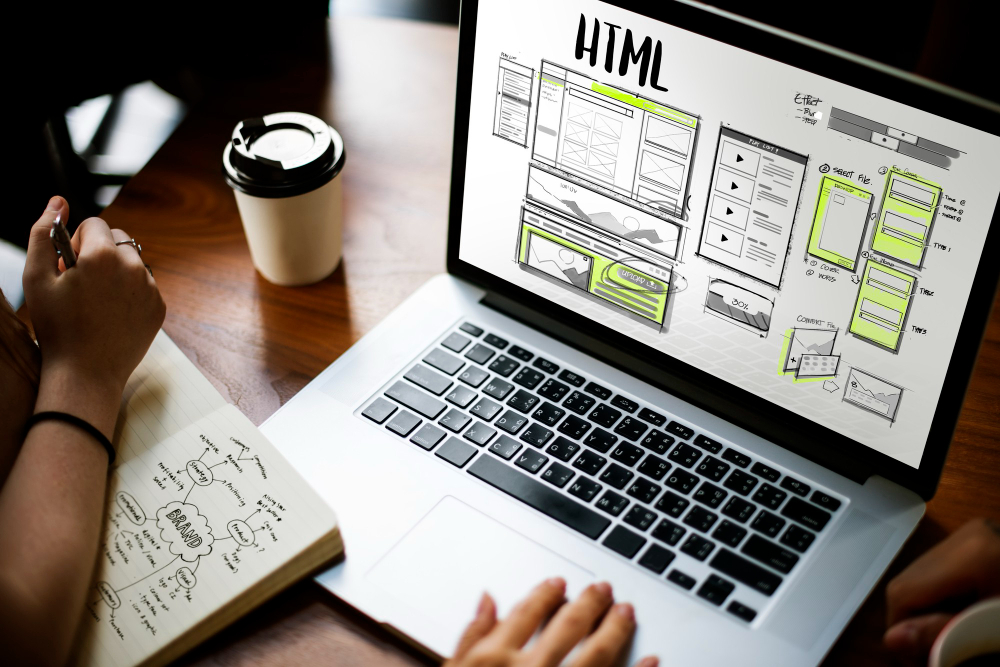
Accessible web design ensures equal access to online information and services for all users, regardless of ability. Learn why accessibility matters, its impact on user experience and brand reputation, and key design practices to make your website inclusive and successful.
In this article:
- What is accessible web design?
- Why is accessible design important
- Accessible design practices
- Final thoughts
The internet has become a vital part of our lives, and more and more people are using it than ever before. Unfortunately, not everything on the internet is accessible for all users, specifically in this case websites.
Accessible web design is a set of techniques and standards aimed at ensuring equal access to information, content and services online regardless of ability or the technology used.
We will discuss what accessibility is, how it applies to websites and why it matters. We’ll also look at some tips for achieving an accessible website design that can benefit both your business and its visitors.
What is Accessible Web Design?
Before understanding what accessible web design is it’s important to fully understand just what accessibility is. Generally, accessibility is the practice of ensuring information, activities and environments are usable for as many people as possible. You will often see this in architecture where entrances are made accessible using railings and lifts over stairs.
In short, just how businesses may consider accessibility to access their store, they also need to consider it with their digital store.
Similarly to architectural design, a website should require the same level of thought. Accessible website design is there to ensure that all of your users will have a smooth experience. And while you may think that most websites are accessible to all, a surprising ‘98% of Websites Fail to Comply With Accessibility Requirements’.
Why is this important?
Ensuring your design is accessible is not only important to your users but also to the success of your website. By ensuring your website is accessible your business will be able to improve user experience, increase market reach and enhance your brand. As an example, ‘71% of web users with a disability will simply leave a website that is not accessible’. If your website is designed to be accessible, it opens you up to a lot more users, and means that said users won’t be isolated.
Creating an accessible experience leads to improved usability and user experience for all audiences/ Accessible websites can reach clients with a broad range of backgrounds. For example, people who have visual impairments, or people who don’t have access to the latest technology. Furthermore, websites that prioritise accessibility often index better on search engines due to more thought being put into the page structure, this will drive more organic traffic and help you reach additional target audiences.
An accessible website will only reflect on your brand in a positive light. You will be able to demonstrate to new audiences that you have taken everyone into consideration, which can result in brand loyalty.
A few Design Practices to make your website accessible.
Alternative Text
Adding alternative text (or ‘alt text’) to images is crucial for accessibility as people using screen-reading technology won’t be able to “see” pictures without it. Alt text allows visually impaired viewers to not only know what an image is about but also understand how it adds value or relevance to the surrounding content.
When writing your Alt text it is important to ensure that it is descriptive enough to describe the image so that the viewer can understand that image’s relevance to your website.
Content and Navigation
To make sure your content is accessible, you should ensure that it uses plain language and logical navigation structures. This can be done in multiple different ways:
One way is to check you are structuring your headings correctly, this will not only help guide users around your website, but also emphasise on the significance of different sections. An example of a proper use of headings is to use H1 as the main title of the page, this will only be used once. Then use H2 headings for each section, and finally H3 for each subsection.
Navigation is one of the most important aspects of creating a user-friendly website or application. With good navigation, users can quickly find what they need without struggling to locate it in a cluttered space on their device. Using recognizable icons, labels and page titles make it easier to identify where to go on the website or in the app, resulting in an improved experience overall compared to sites with no structure at all.
Additionally, it is also important to make sure that there is a high contrast between the colours you are using throughout your website. For example, you don’t want to use a dark blue font on a black background as it will become difficult for users to read. Text should stand out against the background and elements like buttons should be easily distinguishable from the rest of your content.
Note: You can use colour to indicate buttons, important sections, links, navigation and more.
Responsive Design
Not every individual will have access to the exact same technology. Having a responsive website is crucial for so many reasons (read more on this here), but in this instance it is important for accessibility.
Responsive design ensures that your web pages will render to different screen sizes, for example, desktop, tablet, mobile. Having a responsive website not only ensures that more users will be able to access your website, but also improves SEO and user experience.
Captions and transcriptions
Video transcripts are quite useful when media players cannot interpret “closed captions,” helping those who are hard-of-hearing understand videos just by reading them word-by-word rather than having someone interpret sound cues visually. Similarly, transcripts offer added value by making videos SEO friendly since search engines aren’t capable of understanding audio cues either!
Final thoughts
In our current digital age accessible design is more important than ever. Ensuring your website is accessible is crucial for current and potential customers. Their experience on your website should be seamless, both for their user experience and for the success of your website. You can follow our simple steps to make sure your website is accessible for all, because an accessible website is a successful one.




